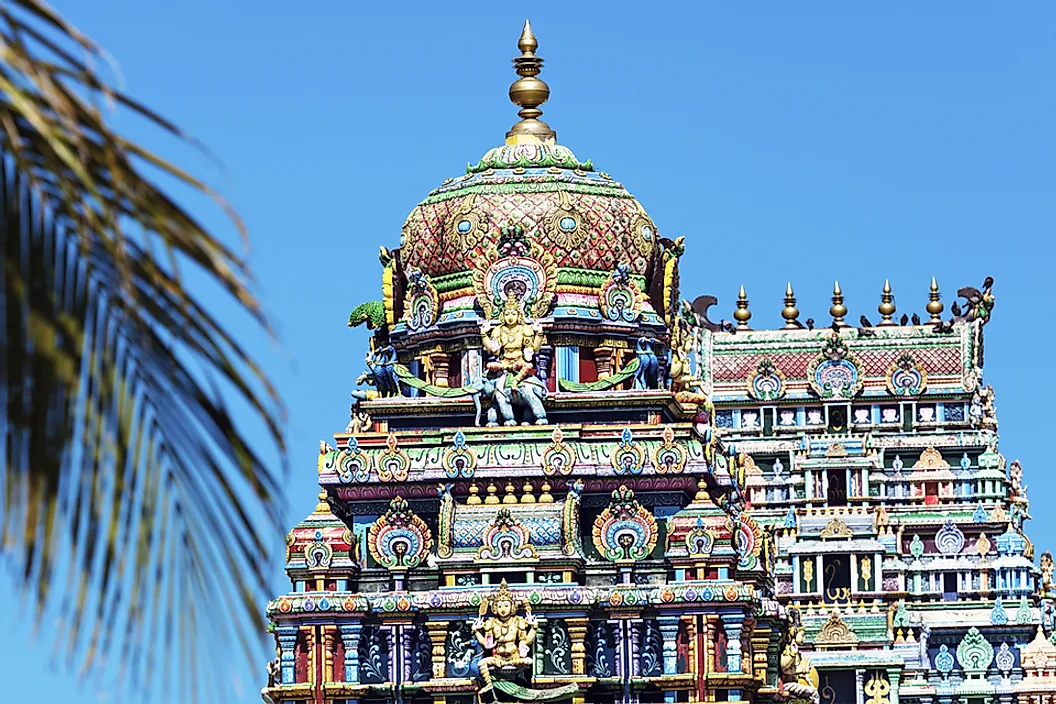Religion in Fiji: Important Facts and Figures

The religious landscape of Fiji is varied, but Christianity is dominant, followed by Hinduism and Islam. While indigenous Fijians are mainly Christians, most of those with Asian ancestry are Hindus, Muslims or Sikhs. The country also celebrates several festivals and observes numerous holidays, since it acknowledges the special days of the major religions practiced in the country. Below is a more detailed description of the religious beliefs of Fiji.
How Did Religious Beliefs Evolve in Fiji?
Prior to the 19th century, indigenous Fijians practiced various traditional religions based on divination and animism. With the arrival of the Europeans in the later years, the religious landscape of Fiji started to change, with Christianity gradually gaining popularity. The conversion of Fijian tribal chiefs to Christianity helped spread the religion among their followers. The colonization of Fiji by the British led to further changes in the country’s religious landscape. While Christianity became hugely popular during this time, other religions like Hinduism, Sikhism, and Islam were also introduced in the country by indentured laborers that the British brought from India to work in the country’s sugar plantations.
Freedom of Religion in Fiji: What Does the Law Say?
Prior to colonization, Fiji's traditional laws governed the people’s right to practice religion. After the British captured Fiji, the laws imposed by the British government became applicable, and therefore the Westminster system dictated the religious rights of the country’s people. In independent Fiji, the constitution protects people’s right to practice the religion of their choice. However, that right might be terminated if deemed a threat to the public or an infringement on the freedom or rights of other members of society.
Indigenous Religious Beliefs of Fiji
The religious beliefs of indigenous Fijians can be classified as shamanism or animism. For example, complex rituals, spirit worship, belief in after life, worship of natural objects and phenomena, belief in several myths and legends, are all part of such religious beliefs. Prior to the arrival of Europeans, such beliefs governed every aspect of life for indigenous Fijians.
Christianity in Fiji
Christianity is the dominant religion in Fiji, and is practiced by 64.4% of the country’s population. The religion was first introduced in Fiji by the Tongans, who were more receptive to the Europeans than Fiji’s indigenous population. As the influence of Enele Ma’afu, a Tongan Prince and an ardent follower of Christianity, grew in the Lau Group of islands of Fiji, Christianity began to spread quickly throughout the country. When Seru Epenisa Cakobau, a powerful Fiji chieftain, converted to Christianity, the religion found an even firmer ground in the country, and the colonization of Fiji by the British in 1874 ensured that Christianity grew and prospered even further. Methodism is the most dominant Christian denomination in Fiji today, while Anglicanism, Catholicism, and several other denominations also have significant followings.
Hinduism in Fiji
Hinduism is the second major religion in Fiji, and is practiced by 27.9% of the country’s population. Hinduism was introduced in Fiji by indentured Hindu workers who were brought to the island from India by British colonialists to work Fiji’s sugar plantations between 1879 and 1920. Many of these workers and their families settled in Fiji and soon their religion evolved to become an integral part of the Fijian religious beliefs. Today, large and impressive Hindu temples dot the country. The most famous among these temples is the Krishna temple of ISKCON, which is ISCON’s biggest temple outside of India. The lives of Fiji’s Hindus have not been entirely peaceful since the community has faced persecution during several events of communal unrest and coups. The Hindu community of Fiji, however, still continues to thrive and has built several temples, schools, and other institutions that serve their religious, educational, and other needs in Fiji.
Islam in Fiji
Like Hinduism, Islam in Fiji was introduced primarily by Muslim indentured workers brought to the islands of Fiji from India by British colonialists. Their religion was established in the country by the latter half of the 19th century. Today, Muslims constitute 6.3% of Fiji's population. The majority of Fiji’s Muslims are Sunnis (59.7 %) and the remainder either belong to the Ahmadiyya minority (3.6%) or other denominations (36.7%). Fiji also has its own Muslim League that advocates for the rights of the country’s Muslim community, promotes Islamic education, and also actively participates in politics.
Communal Conflicts in Fiji
Although the country’s constitution grants the freedom to practice all religions, several communal conflicts and coups mar Fiji's recent history. Between the late 1980s and early 2000s, Hindus became victims of religious persecution and many were forced to emigrate to other countries. Even the burning of Hindu temples was linked to arson attacks. In recent years, some politicians have even advocated for the establishment of Christianity as the state religion of Fiji, but no policy has yet been implemented.











